Depression
- Depression can affect anyone of any age and at any time.
- Depression can happen suddenly as a result of injury, bereavement, family issues, employment issues or other life changing events
- It is often difficult to recognise depression and know what to do about it
- Depression shows up in many different ways. You don’t always realise what’s going on because your problems seem to be physical and not mental
- Most people recover from depression, the earlier they seek help, the better the chances of a speedy recovery
KEY SYMPTOMS
- Persistent sadness or low mood
- Loss of interest or pleasure
- Fatigue or low energy
OTHER SYMPTOMS
- Waking up early or having difficulty sleeping
- Poor or increased appetite
- Difficulty remembering things, poor concentration or indecisiveness
- Blaming yourself or feeling guilty about things
- Feeling low spirited for most of the time, every day
- Lacking self-confidence and self-esteem
- Being pre-occupied with negative thoughts
- Self-harm or thoughts of suicide
Don’t try to manage depression on your own-talk to someone you trust such as your team doctor or contact the SUPPORT helpline.
There are 2 main approaches to treating depression-medical using anti-depressants and non-medical using talking therapies. Your Club Doctor or SUPPORT staff can help discuss the best options for you.
Gambling
Gambling problems are often experienced as being completely outside a person’s control.
The impact of gambling can be more than losing money. You can become isolated, lose interest in maintaining relationships and lack motivation to engage in social activities.
WHAT CAN YOU DO?
- Changing your behaviour: find out how you can manage the urge to gamble and make changes to break out of old patterns and routine
- Self-exclusion: Find out how you can bar yourself from betting shops, casinos and online gambling companies
- Blocking software: Find out how you can set up your computer or phone to stop you accessing gambling websites and/or apps
- Managing your finances and debts: find out how you can get out of debt and organise your finances
PFA Scotland has a partnership with the RCA Trust to provide confidential one-to-one counselling service for players struggling with a gambling addiction.
You can contact Andy Todd on 0141 887 0880 or speak to one of the SUPPORT Team.
Alcohol
- Alcohol can become an addiction.
- It can be easy to find yourself having a glass of wine or bottle of beer every night, but this level can have a detrimental effect
your health - Alcohol dependence can run in families
- Stressful events such as bereavement, injury or contract worries can trigger heavy drinking which can lead to dependence
WHAT CAN YOU DO?
- Keep track of what you are drinking: keep a diary and check against the recommended intake guidelines
- Try ti have alcohol free days: try to give yourself and your body a rest from alcohol
- Talk to someone: speak to your Club Doctor, own GP or the SUPPORT helpline for confidential help
Stress and Anxiety
- Some stress is good for you. It provides the fight or flight mechanism that makes you run, score goals or react to stop them
- Stress can lead to more serious problems such as anxiety or depression
WHAT CAN YOU DO?
- Take a regular break: give yourself a break whenever you feel things getting on top of you
- Learn to relax: follow a simple routine to relax your muscles and slow your breathing
- Sort out your worries: There is no point worrying about things you can’t change
- Improve your lifestyle: Find time to eat properly, reduce alcohol intake and get enough sleep
- Confide in someone: Don’t keep emotions bottled up, and focus on the positive aspects in your life
ANXIETY
- Anxiety makes you think that something bad is going to happen
- Feelings of fear and anxiety can last for a short time, and then pass. But they can also last for much longer and you can get stuck with them
- Anxiety affects your ability to eat, sleep, concentrate ir enjoy life. It can affect your performance on the pitch
- Talking therapies such as Cognitive Behavioural Therapy (CBT) are very effective for people with anxiety issues. If you do not wish to talk face-to-face, there are online packages which we can recommend.
- Improve your lifestyle: Find time to eat properly, reduce alcohol intake and get plenty sleep.
- Confide in someone: Don’t keep things bottled up, and focus on the positive things in your life
Anger
- Anger is a natural response to feeling attacked, injured or violated-not just physically, but mentally and emotionally
- In itself, anger is not good or bad, but when it gets out of control it can be frightening
- Angry feelings can lead to destructive and violent behaviour
- Suppressed anger can also have negative effects
WHAT CAN YOU DO?
- Assertiveness training: this can help you to control your anger and channel it more positively
- Look after yourself: Exercise increases self-esteem, so keep training
- Reduce alcohol intake: Too much alcohol can lead to a loss of control
- Confide in someone: Don’t keep emotions bottled up, find someone to talk to about your feelings
Eating Disorders
- Anyone can develop an eating disorder, regardless of their age, sex or cultural background
- A whole range of factors can contribute to it’s development such as genetic, psychological, environmental, social and biological influences
- The sooner you get treatment, the more likely you are to make a full recovery


